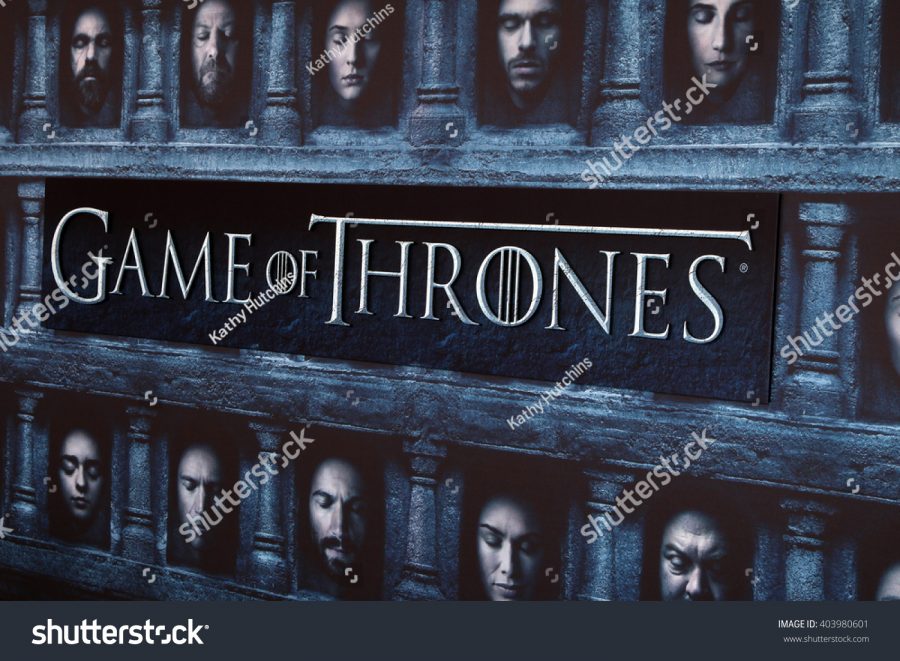Magic, Murder and Monsters: How “Game of Thrones” Became a Pop Culture Phenomenon
The eighth and final season of hit series “Game of Thrones” is expected to shock and surprise many viewers.
April 28, 2019
If you’ve logged onto any social networking site in the last month, hearing about “Game of Thrones” seems to be inescapable. Discussions about dragons, ice zombies and an iron throne are quickly dominating the pop culture landscape.
The eighth and final season of the hit show began airing on April 14, with the highly anticipated premiere garnering a record 17.4 million viewers.
Before the third episode of the season airs on Sunday, many fans are preparing to depart with their most beloved characters. The episode, which will focus on a battle with the series’ main antagonists of the White Walkers, has been building up for the last seven seasons.
According to the predictions of government teacher James Campbell, an avid fan of the show, it will be “a bloodbath.”
The tension seems to be palpable as fans prepare to see the show end after this season. It will therefore have to perform the impressive feat of wrapping up seven previous seasons of highly complicated storylines and character arcs.
The show itself has several elements which have not traditionally been able to gain mainstream popularity of its calibre: complex familial lineages that are difficult to keep up with, high-fantasy worldbuilding and frequent political power plays.
Despite this, it is safe to say that “Game of Thrones” has become something of a pop culture phenomenon.
So how did it catch on to such widespread audiences so quickly?
“I think it’s popular because it’s something that’s beautifully made, and also it’s one of those shows that actually has a solid storyline, solid directing,” said senior Bona Bitegeko, who is a fan of the show. “And I think it’s just interesting in general.”
Campbell said its popularity is due to its ability to appeal to fans of all genres.
“I don’t like the fantasy genre, but in a way, Game of Thrones is like every genre,” he said.
“It’s a story of political intrigue, it’s a romance, it’s a comedy, it’s a horror movie, at times it’s a suspense and mystery.”
Its tendency to intertwine viewers in complex plotlines and leave every episode on a cliffhanger can also make it easy to get addicted.
“You basically just get sucked into it and you cannot stop watching. You get hooked,” said junior Meaghan McAfee. “People can’t help but be involved in the show.”
Another reason for its appeal may be the popularity of its large cast of characters.
“I’m in love with the characters,” said Bitegeko.
The massive list of characters, many of whom have varying loyalties and names which are difficult to pronounce, has received praise from critical outlets for their writing and development.
“The characters are really well-written,” said Campbell. “Even the good characters have qualities that are less than desirable, and the bad characters have redeeming qualities”
“The characters are rich and, often, like people we might even know.”.
These people, though fictional, are often complex and dimensional, increasing their intrigue and relatability amongst viewers.
“[Viewers] like to love characters, and they like to hate characters,” said McAfee.
Though the show is rated TV-MA and is therefore not appropriate for many younger demographics, it has reached an unprecedented level of interest across generations.
Campbell said this is due to the “different genres, the very clever plot twists and how well-written the characters are.”
“Game of Thrones” has caught onto audiences like wildfire, and it appears that its complex characters and clever writing have helped it achieve such cult status.
As for her final thoughts on the show, Bitegeko said it is “incredible. Period.”


